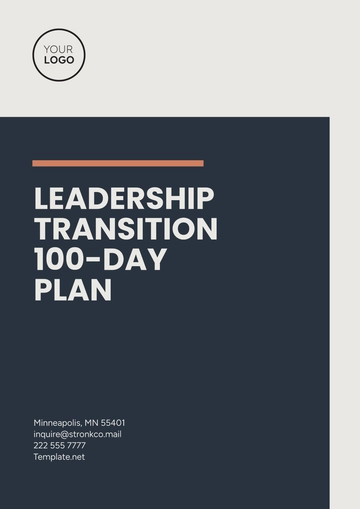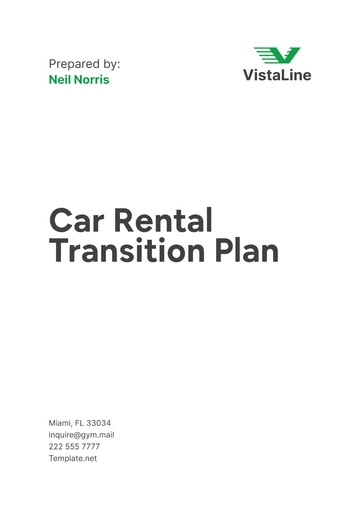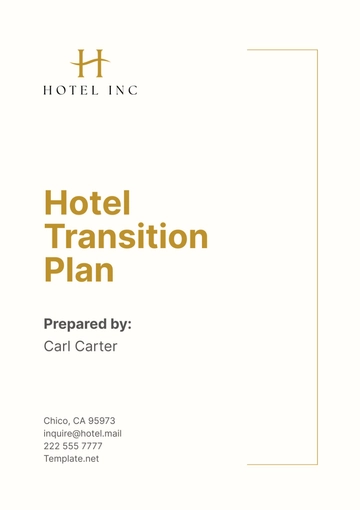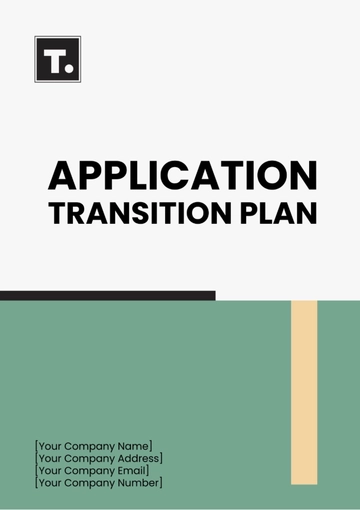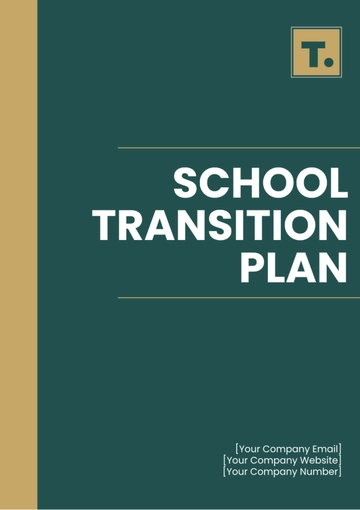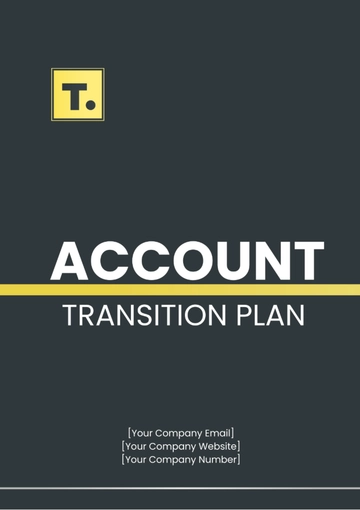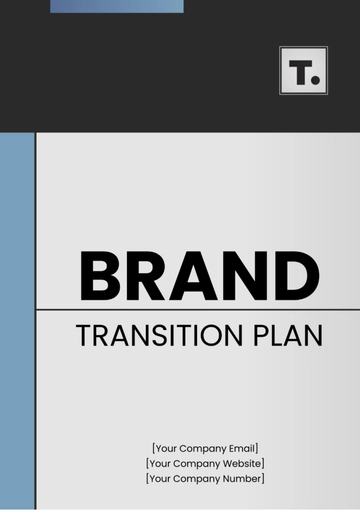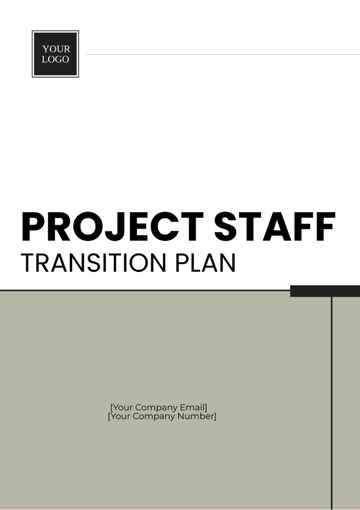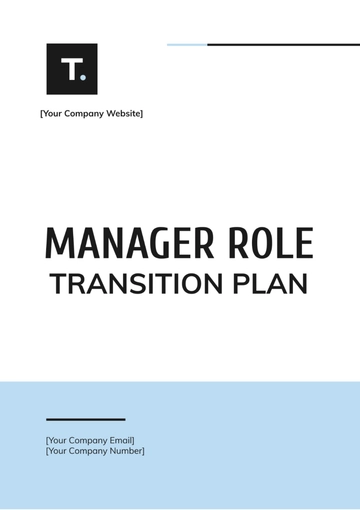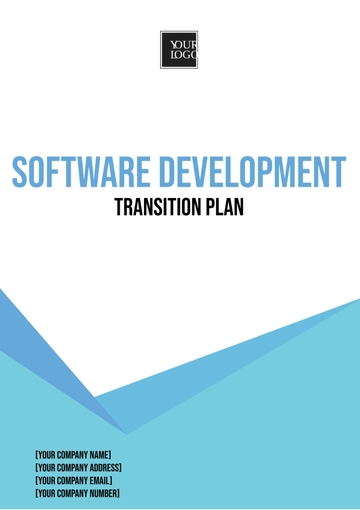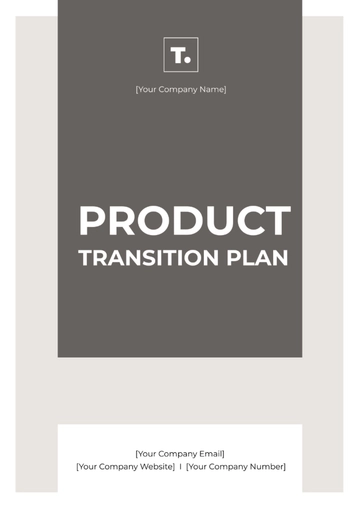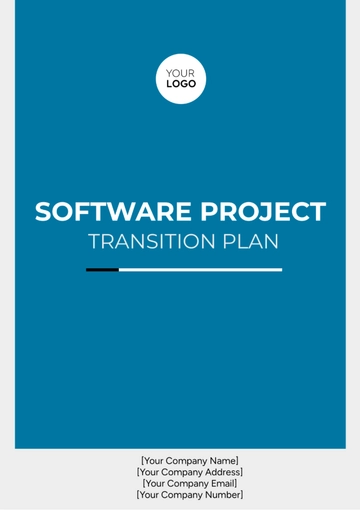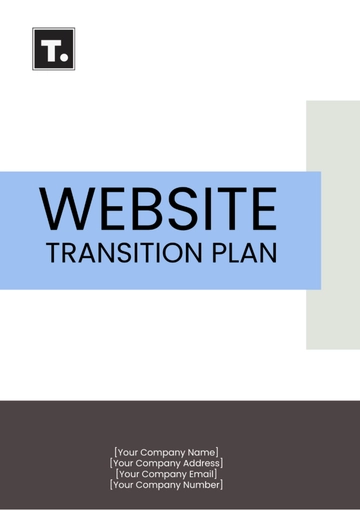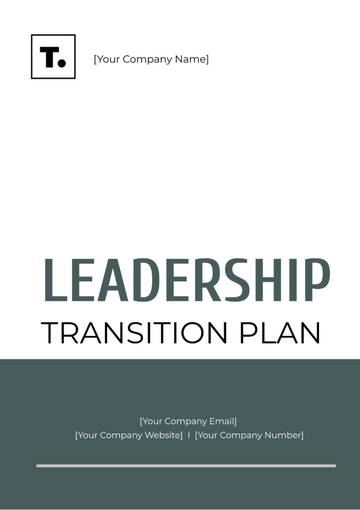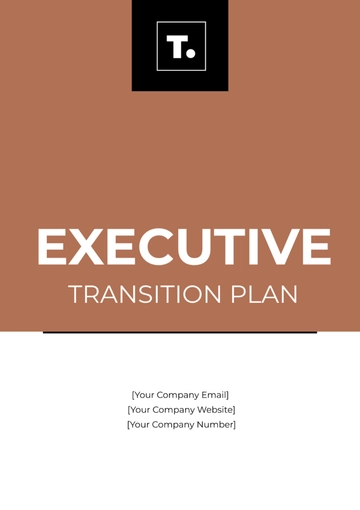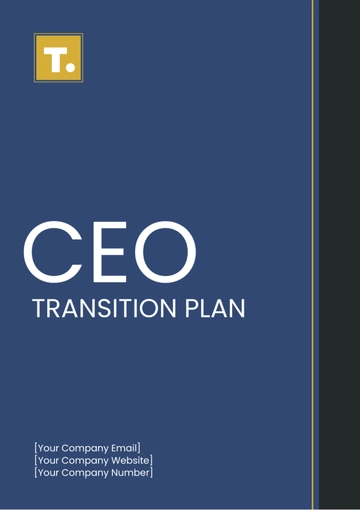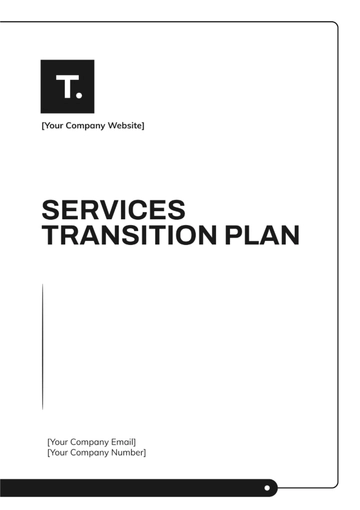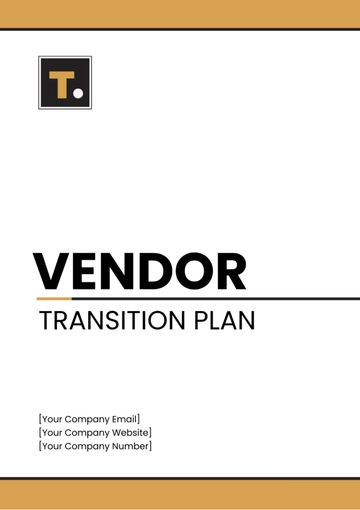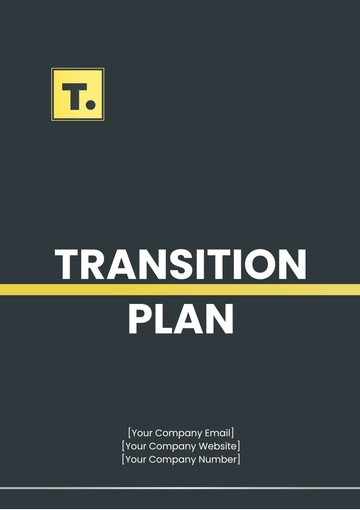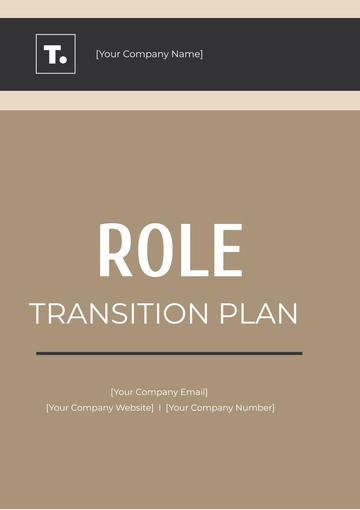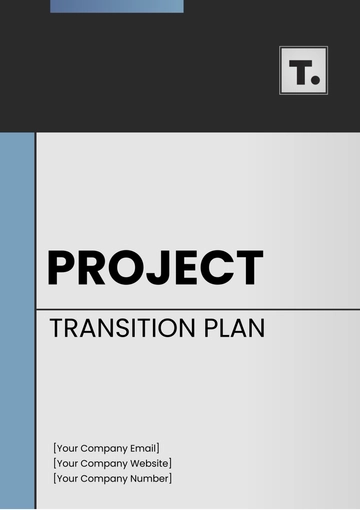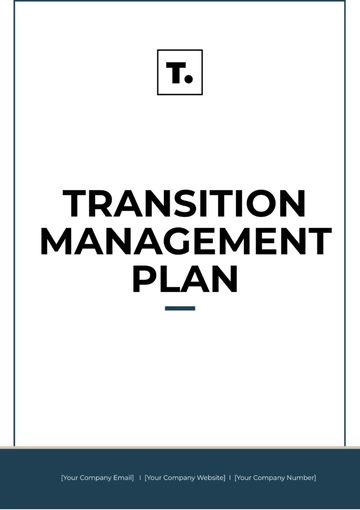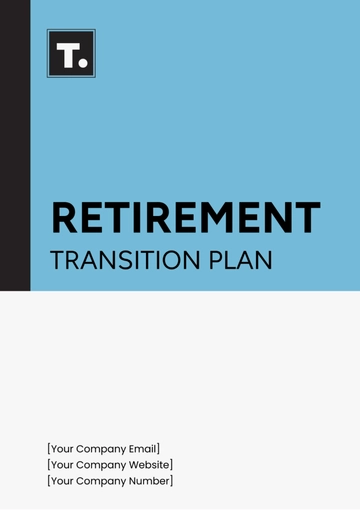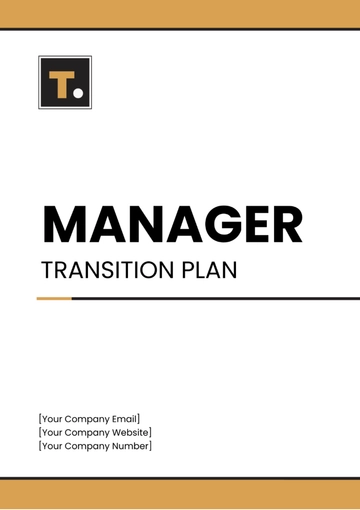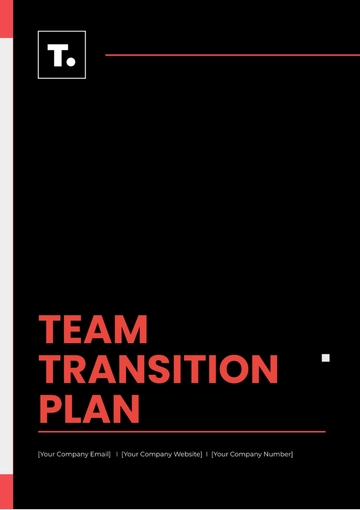Free Brand Transition Plan
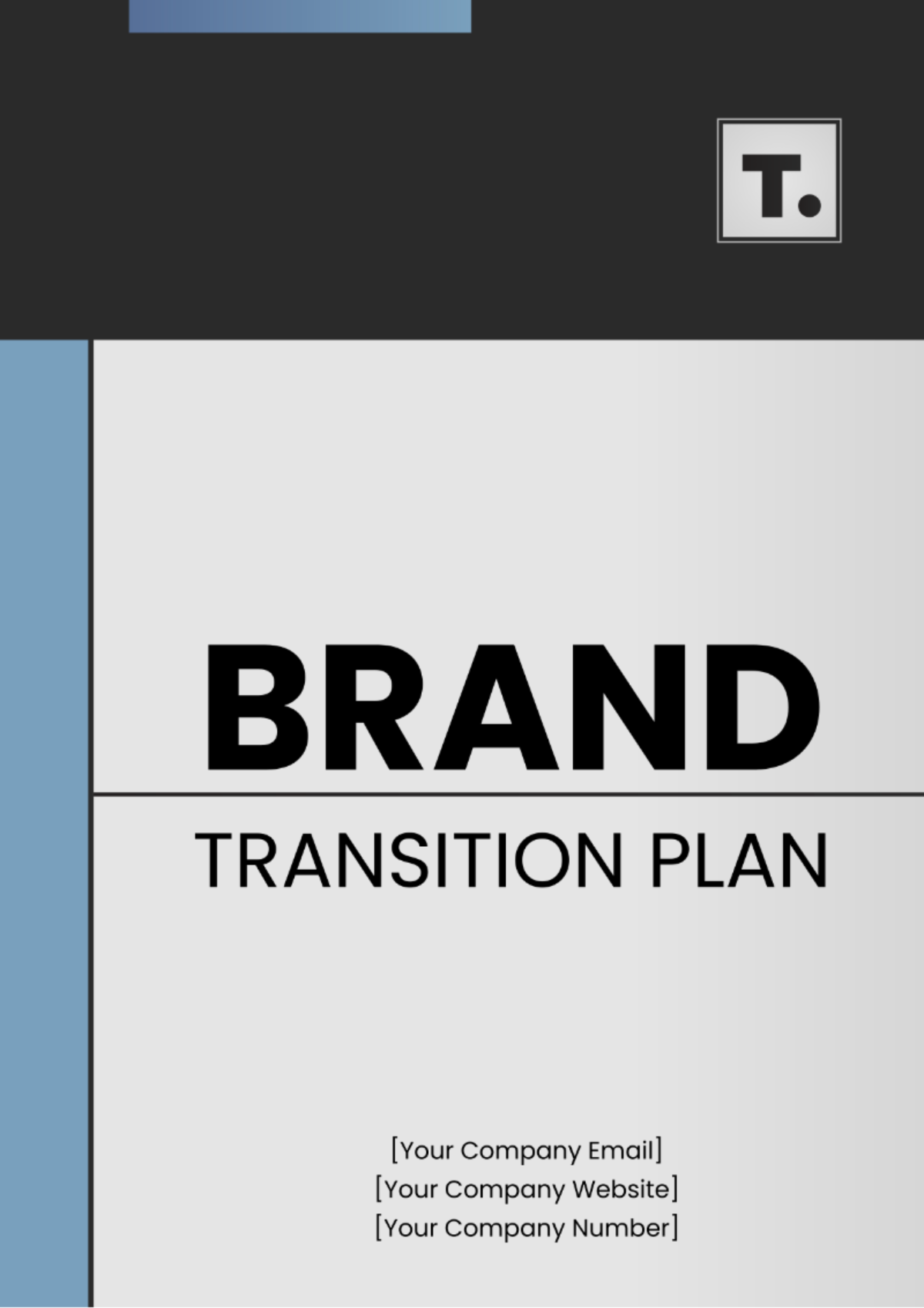
Prepared By : | [Your Name] |
Department : | [Your Department] |
Date Prepared : | [Date] |
I. Introduction and Background
Our current brand, established in [Year] as [Your Company Name], has been a leading provider of innovative tech solutions in the software industry. Over the past decade, we have built a strong reputation for cutting-edge products and exceptional customer service.
The decision to transition to a new brand stems from our strategic vision to expand into emerging markets and diversify our product offerings to better meet evolving customer needs.
II. Objectives and Goals
Objective | Goal |
|---|---|
Enhance brand perception and relevance in new target markets. | 1. Increase brand awareness by 30% among millennials within the first six months of the transition. |
2. Achieve a 20% increase in customer engagement with our new brand identity within the first year. |
III. Target Audience Analysis
Our target audience includes tech-savvy individuals aged 18-35, small to medium-sized businesses seeking innovative solutions, and tech enthusiasts interested in cutting-edge technologies.
Challenges: Addressing skepticism among existing customers accustomed to our previous brand identity and gaining traction in competitive markets.
IV. Brand Identity and Positioning
Aspect | Details |
|---|---|
New Brand Identity | [New Brand Name] |
Logo | A sleek, modern design incorporating dynamic shapes and vibrant colors. |
Tagline | "Empowering Tomorrow, Today" |
Positioning | Positioned as a forward-thinking technology partner, delivering tailor-made solutions to fuel business growth and digital transformation. |
V. Transition Strategy and Timeline
5.1 Strategy
Gradual transition with a phased approach, starting with internal rebranding efforts followed by external communications to customers and stakeholders.
5.2 Timeline
Phase | Activities | Timeline |
|---|---|---|
Internal Rebranding | Develop new brand identity elements | Q1 2050 |
Update internal documents and materials | Q2 2050 | |
Customer Communication | Draft customer communication materials | Q3 2050 |
Conduct employee training on new brand messaging | Q4 2050 | |
Public Launch | Update external marketing channels | January 2051 |
VI. Communication Plan
Channels: Website updates, email newsletters, social media announcements, press releases, and direct mailers.
Messages: Emphasize continuity of quality service while highlighting the exciting changes and benefits of the new brand.
Timing: Coordinated rollout to ensure consistent messaging and minimize confusion.
VII. Implementation Plan
Responsibilities: The marketing team leads the rebranding efforts, while cross-functional teams ensure alignment across departments.
Tasks: Update website and digital assets, design new marketing collateral, train employees on brand messaging, and update contracts and legal documents.
Resource Allocation: Budget allocated for design agencies, marketing campaigns, and employee training programs.
VIII. Monitoring and Evaluation
KPIs: Brand awareness metrics, customer feedback surveys, website traffic, and social media engagement.
Evaluation: Monthly progress reviews to track KPIs, identify challenges, and adjust strategies accordingly to ensure a successful brand transition.
IX.Contact Person
For any inquiries or further information regarding this Brand Transition Plan, please contact:
[Your Name]
[Your Position]
X. Approval
This Brand Transition Plan has been reviewed and approved by:
[Brand Manager Name]
Brand Manager
[Date]
By following this comprehensive Brand Transition Plan, we aim to smoothly and effectively transition from our current brand to the new brand, ensuring continuity of quality service while embracing innovation and growth opportunities in the dynamic tech industry landscape.
- 100% Customizable, free editor
- Access 1 Million+ Templates, photo’s & graphics
- Download or share as a template
- Click and replace photos, graphics, text, backgrounds
- Resize, crop, AI write & more
- Access advanced editor
Introducing the Brand Transition Plan Template by Template.net, your strategic partner for seamless brand transitions. Fully editable and customizable, it offers a structured framework to outline steps, timelines, and stakeholders involved in the transition process. Tailor the template effortlessly to fit your brand migration needs, ensuring clarity and effectiveness. Simplify your brand transition with this essential tool guiding your strategy.
You may also like
- Finance Plan
- Construction Plan
- Sales Plan
- Development Plan
- Career Plan
- Budget Plan
- HR Plan
- Education Plan
- Transition Plan
- Work Plan
- Training Plan
- Communication Plan
- Operation Plan
- Health And Safety Plan
- Strategy Plan
- Professional Development Plan
- Advertising Plan
- Risk Management Plan
- Restaurant Plan
- School Plan
- Nursing Home Patient Care Plan
- Nursing Care Plan
- Plan Event
- Startup Plan
- Social Media Plan
- Staffing Plan
- Annual Plan
- Content Plan
- Payment Plan
- Implementation Plan
- Hotel Plan
- Workout Plan
- Accounting Plan
- Campaign Plan
- Essay Plan
- 30 60 90 Day Plan
- Research Plan
- Recruitment Plan
- 90 Day Plan
- Quarterly Plan
- Emergency Plan
- 5 Year Plan
- Gym Plan
- Personal Plan
- IT and Software Plan
- Treatment Plan
- Real Estate Plan
- Law Firm Plan
- Healthcare Plan
- Improvement Plan
- Media Plan
- 5 Year Business Plan
- Learning Plan
- Marketing Campaign Plan
- Travel Agency Plan
- Cleaning Services Plan
- Interior Design Plan
- Performance Plan
- PR Plan
- Birth Plan
- Life Plan
- SEO Plan
- Disaster Recovery Plan
- Continuity Plan
- Launch Plan
- Legal Plan
- Behavior Plan
- Performance Improvement Plan
- Salon Plan
- Security Plan
- Security Management Plan
- Employee Development Plan
- Quality Plan
- Service Improvement Plan
- Growth Plan
- Incident Response Plan
- Basketball Plan
- Emergency Action Plan
- Product Launch Plan
- Spa Plan
- Employee Training Plan
- Data Analysis Plan
- Employee Action Plan
- Territory Plan
- Audit Plan
- Classroom Plan
- Activity Plan
- Parenting Plan
- Care Plan
- Project Execution Plan
- Exercise Plan
- Internship Plan
- Software Development Plan
- Continuous Improvement Plan
- Leave Plan
- 90 Day Sales Plan
- Advertising Agency Plan
- Employee Transition Plan
- Smart Action Plan
- Workplace Safety Plan
- Behavior Change Plan
- Contingency Plan
- Continuity of Operations Plan
- Health Plan
- Quality Control Plan
- Self Plan
- Sports Development Plan
- Change Management Plan
- Ecommerce Plan
- Personal Financial Plan
- Process Improvement Plan
- 30-60-90 Day Sales Plan
- Crisis Management Plan
- Engagement Plan
- Execution Plan
- Pandemic Plan
- Quality Assurance Plan
- Service Continuity Plan
- Agile Project Plan
- Fundraising Plan
- Job Transition Plan
- Asset Maintenance Plan
- Maintenance Plan
- Software Test Plan
- Staff Training and Development Plan
- 3 Year Plan
- Brand Activation Plan
- Release Plan
- Resource Plan
- Risk Mitigation Plan
- Teacher Plan
- 30 60 90 Day Plan for New Manager
- Food Safety Plan
- Food Truck Plan
- Hiring Plan
- Quality Management Plan
- Wellness Plan
- Behavior Intervention Plan
- Bonus Plan
- Investment Plan
- Maternity Leave Plan
- Pandemic Response Plan
- Succession Planning
- Coaching Plan
- Configuration Management Plan
- Remote Work Plan
- Self Care Plan
- Teaching Plan
- 100-Day Plan
- HACCP Plan
- Student Plan
- Sustainability Plan
- 30 60 90 Day Plan for Interview
- Access Plan
- Site Specific Safety Plan
